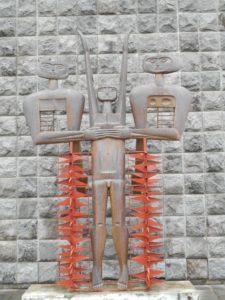This post is part of CTC’s Reflections from our Clinicians series. These series consists of blogs written in the first person narrative, meant to reflect our values of independence while ensuring a broader diversity of topics, styles and opinions.
New York, December 18, 2016
In light of the recent election and the anti-immigrant messages in United States politics, I wrote down some ideas and experiences of my reflections while working with immigrant patients.
I am a passionate social worker, and I am an immigrant myself. What is so unique about working with immigrants? Is there any difference between working with immigrant patients and non-immigrant patients? Do we have to even ask patients about their immigration process? Or, even their immigration status? Do we need to bring immigration into our therapy sessions? In this moment in time, can we ask questions about immigration without scaring our patients? And how do we do it? Well, these are some examples of questions that I hope clinicians ask themselves in their practice. For us, at the Critical Therapy Center it is always already part of the dialogue.
Since the personal is always political, I can start with myself. I am a very proud Colombian woman who had the opportunity and privilege to be a US citizen. I came to this country, only with the idea that I will stay for 3 months, and I have been here 16 years. I confess that there has not been any year in my 16 years of being in the U.S., that I did not miss my country, my family, my culture. In America, I have a beautiful daughter and an incredible partner, who is Colombian as well. As for my daughter – she was born in New Jersey. And with her birth, I begun to wonder how do we create another culture within our culture? Do we forget our own to become or to integrate within another?
As a therapist working with immigrants for the past 16 years, I always see in their eyes something special when they are talking about their countries — a tint of sadness, a melancholia when describing their countries, their families, their lands, their dreams. Every one of my patients have an amazing story that I wish I could record. I am grateful because they have shared with me. Additionally, I have worked with some immigrants who tighten up and are a bit frightened when talking about their country of origin; for these folks their country of origin brought persecution and pain, resulting in a very ambivalent feeling about what they left behind.
While working with immigrants I have the unique opportunity to hear thousands of stories and to meet amazing people. As social workers we have a responsibility to hear these stories and if we lose, or miss, this opportunity we are losing the chance to get to know our patients in a deeper way. To lose this opportunity is to lose the incredible aspect of our patients and their dreams, their families, their sadness, and their losses. Looking at the acculturation process is an important part of therapy. It offers us a better understanding of the many losses patients had to face when coming here. There is trauma in each story, even if the process of coming to this country was on simple (with a visa, with his/her family member(s), with a job). There are always loses, and we need to be aware of them. We need to learn to identify them and to respect them.
In my work I have identified phases that immigrants undertake as part of the immigration process. Some of the phases start before they arrive here; for example: reasons why they decided to come to the US, process in which they came, experience arriving to US territory. Others happen once they arrive here like: the roles they assume, how others perceive them, and their experiences here. Lastly, yet very significantly, the experiences they might have had with mental health professionals, or with health care professionals, or any other interaction with US agencies. For example, refugees usually go through a mental health screening to assessed whether or not their stories of trauma and pain are indeed true. More recently, how the anti-immigration rhetoric is affecting them, their families and loved ones.
I love working with immigrants, because they are, a mirror of my own loses, of my own love for Colombia, and my gratitude to the US, and the opportunities I have here, but especially because it gives me the opportunity to learn, to question what we do (politically, personally, socially) and the way we do it. It also gives me opportunities to reflect on our system of immigration and how as a country, the US treats its immigrant population. After listening to stories of pain, loss and hope, I feel I have gained a better and greater understanding of how brave immigrants are, and how many strengths we have and need in order to survive each day.
Working with immigrants helps me asses what matters most: my deep respect for the Other. It also encouraged me to create the idea of a second or third culture. We don’t have to give up certain traditions, and we can integrate some from this country. We can keep what we love and assimilate what speaks to us, and in the process creating our own unique and multicultural traditions. As immigrants we constantly negotiate between there (home) and here (not home, yet home now), while in the process we are creating a blend of cultures, of experiences, of families… a third, forth or simply anOther unique culture based on our own personal histories and experiences.

